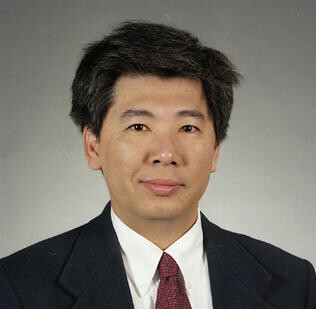Page 48 • (1,357 results in 0.021 seconds)
-
. Pamela Ronald is a Distinguished Professor in the Department of Plant Pathology and the Genome Center at the University of California, Davis and also serves as founding director of the UC Davis Institute of the UC Davis Institute for Food and Agricultural Literacy. 2017 - Professor James G. Anderson Chemistry professor James Anderson leads a research team of 20 that focuses on the interaction between climate and energy. Photo by: Alana M. Steinberg, courtesy of The Harvard Crimson James G. Anderson
-
preparation, coordination, sampling, analysis, and evaluation of laboratory and field data. This position will support staff with projects and programs for wastewater, surface water, ground water and solid waste. Qualifications: Enrollment in a college-level science course work designed to result in a Bachelor’s or Master’s degree in Chemistry OR related science with at least a minor in Chemistry. Physical Requirements and Working Conditions: Most work is performed indoors in an Environmental Laboratory
-
101: Writing Seminar Math 123: Modern Elementary Mathematics I WEST-B (Basic Skills Test for Reading, Mathematics, and Writing) or equivalent SAT/ACT Score (Official SAT/ACT scores must be sent to PLU. Equivalent scores are based on test date.) SAT: Reading 500 or 27, Math 515 or 27.5, Writing 490 or 28 ACT: Reading 22, Math 22, Writing 8 or 23 Co-Requisites: Elementary Education majors are required to take one Life Science (Biology) and one Physical Science (Chemistry, Geoscience, or Physics
-
Dr. George and Mrs. Helen LongDr. George Long graduated from Pacific Lutheran University in 1966 with degrees in both Biology and Chemistry. He received his Ph.D. in Biochemistry from Brandeis University in 1971, where he studied invertebrate lactate dehydrogenases. He then worked on nuclear DNA polymerases as a post-doctoral fellow at the University of California at San Diego. Dr. Long was Assistant Professor of Chemistry at Pomona College from 1971-79 and from 1979-1982 he was an NIH Senior
-
. Each test results in a numerical score of 200-400. The results are scaled such that a score of 300 represents the average national performance. The four tests are as follows: Survey of Natural Sciences = 90 minutes, 100 questions – 40 questions cover biology, 30 questions cover general chemistry, and 30 questions cover organic chemistry Reading Comprehension = 50 minutes, 40 questions – three reading passages each with 13 or 15 questions about each passage Physics = 50 minutes, 50 questions
-
PLU graduates completed the MAMS program and went on to the DO Program at PNWU Master of Arts in Medical Sciences (MAMS) Prerequisite Courses: English Composition and Literature 6 Semester Hours/9 Quarter Hours General Chemistry 8 Semester Hours/12 Quarter Hours Organic Chemistry 8 Semester Hours/12 Quarter Hours Physics 8 Semester Hours/12 Quarter Hours Biological Sciences 8 Semester Hours/12 Quarter Hours PLU Equivalent Prerequisite Courses: FYEP 101 (FW), 102 (FD) CHEM 115 & 116 MATH 140 is a
-
. Each test results in a numerical score of 200-400. The results are scaled such that a score of 300 represents the average national performance. The four tests are as follows: Survey of Natural Sciences = 90 minutes, 100 questions – 40 questions cover biology, 30 questions cover general chemistry, and 30 questions cover organic chemistry Reading Comprehension = 50 minutes, 40 questions – three reading passages each with 13 or 15 questions about each passage Physics = 50 minutes, 50 questions
-
Desserts and Demos 2016 on Thu. March 10th, 7 PM! Posted by: yakelina / March 4, 2016 March 4, 2016 Read Previous Mathematics/Chemistry seminar this Wednesday 3/2 featuring Profs. Justin Lytle & Tom Edgar Read Next Chem. Seminar: Joel Baker, Monday, March 14th LATEST POSTS ACS Diversity, Inclusion, Equity, and Respect (DEIR) Scholarship May 7, 2024 Environmental Lab Scientist in Training May 2, 2024 The Priscilla Carney Jones Scholarship April 18, 2024 $2000 DEIR scholarship- Extended Deadline
-
-level courses: demonstrate integration of analytical, methodological, and conceptual skills in addressing a sociological question. In examining our curriculum map and the above LO’s, we see that as students progress through the sociology curriculum, they are first introduced to research questions, methods, and analysis in SOCI 101/190 and 232 (both required courses). Students are given a lot of time to practice these skills in our 200-, 300-, and some 400-level courses such as 233, 330/336, and 410
-

, Academic Year 2005-2006. 7. Top 50 Most Downloaded Articles award, 2005. Emerald Literati Network An analytical framework for evaluating e-commerce business models and strategies”, Internet Research: Electronic Networking Applications and Policy, 11(4), 2001. 8. Research Award. School of Business, Pacific Lutheran University, Academic Year 2002-2003, 2005-2006, 2008-09, and 2011-12. 9. Faculty Grant Award (with Dr. Eli Berniker), Wang Center for International Programs, Pacific Lutheran University
Area of Emphasis/Expertise
Do you have any feedback for us? If so, feel free to use our Feedback Form.


